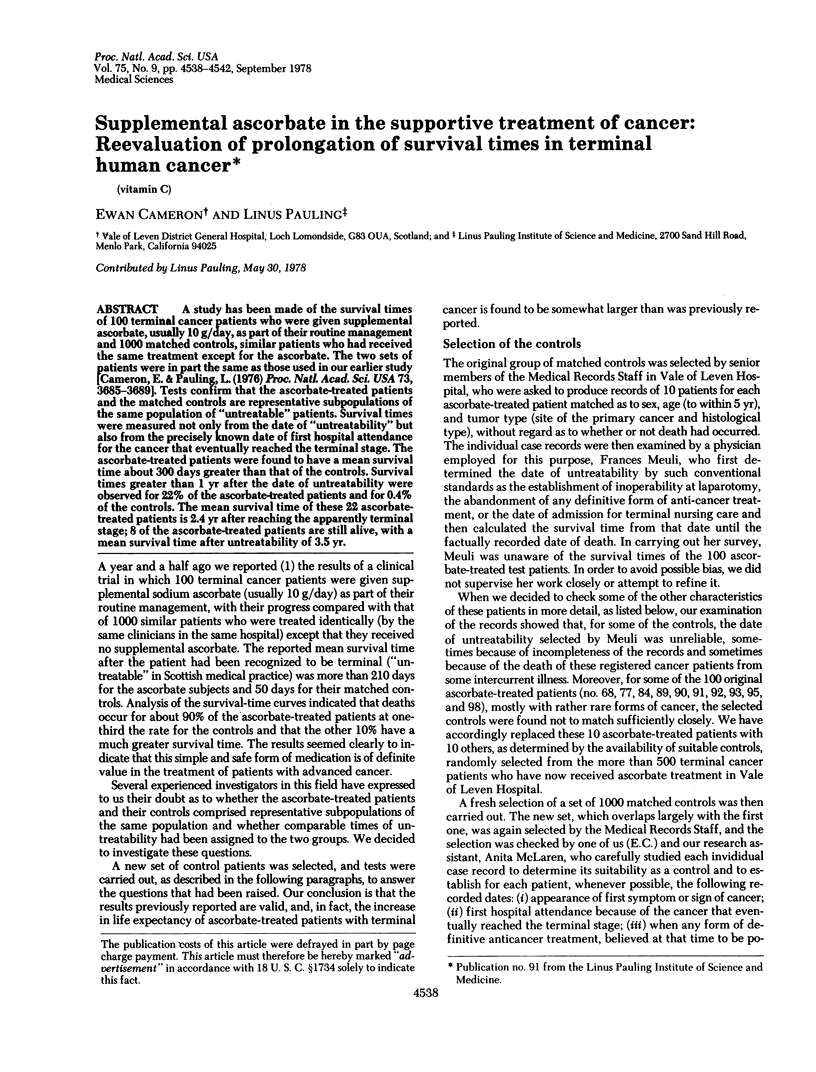Supplemental ascorbate in the supportive treatment of cancer: Reevaluation of prolongation of survival times in terminal human cancer (original) (raw)
Abstract
A study has been made of the survival times of 100 terminal cancer patients who were given supplemental ascorbate, usually 10 g/day, as part of their routine management and 1000 matched controls, similar patients who had received the same treatment except for the ascorbate. The two sets of patients were in part the same as those used in our earlier study [Cameron, E. & Pauling, L. (1976) Proc. Natl. Acad. Sci. USA 73, 3685-3689]. Tests confirm that the ascorbate-treated patients and the matched controls are representative subpopulations of the same population of “untreatable” patients. Survival times were measured not only from the date of “untreatability” but also from the precisely known date of first hospital attendance for the cancer that eventually reached the terminal stage. The ascorbate-treated patients were found to have a mean survival time about 300 days greater than that of the controls. Survival times greater than 1 yr after the date of untreatability were observed for 22% of the ascorbate-treated patients and for 0.4% of the controls. The mean survival time of these 22 ascorbate-treated patients is 2.4 yr after reaching the apparently terminal stage; 8 of the ascorbate-treated patients are still alive, with a mean survival time after untreatability of 3.5 yr.
Keywords: vitamin C

Selected References
These references are in PubMed. This may not be the complete list of references from this article.
- Cameron E., Campbell A. The orthomolecular treatment of cancer. II. Clinical trial of high-dose ascorbic acid supplements in advanced human cancer. Chem Biol Interact. 1974 Oct;9(4):285–315. doi: 10.1016/0009-2797(74)90019-2. [DOI] [PubMed] [Google Scholar]
- Cameron E., Pauling L. Supplemental ascorbate in the supportive treatment of cancer: Prolongation of survival times in terminal human cancer. Proc Natl Acad Sci U S A. 1976 Oct;73(10):3685–3689. doi: 10.1073/pnas.73.10.3685. [DOI] [PMC free article] [PubMed] [Google Scholar]